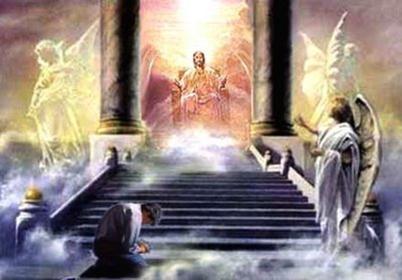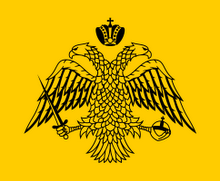Isabella II (Spanish: Isabel II; 10 October 1830 – 10 April 1904) was queen regnant of Spain from 1833 until 1868. She came to the throne as an infant, but her succession was disputed by the Carlists, who refused to recognise a female sovereign, leading to the Carlist Wars. After a troubled reign, she was deposed in the Glorious Revolution of 1868, and formally abdicated in 1870. Her son Alfonso XII became king in 1874.
Notice Isabella is wearing a diadem with stars on her head.
'Isabella was born in Madrid in 1830, the eldest daughter of King Ferdinand VII of Spain, and of his fourth wife and niece, Maria Christina of Bourbon-Two Sicilies. Queen Maria Christina became regent on 29 September 1833, when her three-year old daughter Isabella was proclaimed sovereign on the death of the king.
Isabella succeeded to the throne because Ferdinand VII had induced the Cortes Generales to help him set aside the Salic law, introduced by the Bourbons in the early 18th century, and to re-establish the older succession law of Spain. The first pretender, Ferdinand's brother Carlos, fought seven years during the minority of Isabella to dispute her title. Carlos' and his descendants' supporters were known as Carlists, and the fight over the succession was the subject of a number of Carlist Wars in the 19th century.
Isabella's reign was maintained only through the support of the army. The Cortes and the Moderate Liberals and Progressives reestablished constitutional and parliamentary government, dissolved the religious orders and confiscated their property (including that of Jesuits), and tried to restore order to Spain's finances. After the Carlist war, the regent, Maria Christina, resigned to make way for Baldomero Espartero, Prince of Vergara, the most successful and most popular Isabelline general. Espartero, a Progressive, remained regent for only two years.
Baldomero Espartero was turned out in 1843 by a military and political pronunciamiento led by GeneralsLeopoldo O'Donnell and Ramón María Narváez. They formed a cabinet, presided over by Joaquín María López y López. This government induced the Cortes to declare Isabella of age at 13.'
Jennifer Lopez being famous today is not without reason.
The surnames according to Spanish tradition are often with the surname of the father (first) and the mother (second) So as children are born of different mothers, this name would change and yet the name of the father would remain in the generations. (an interesting discovery)
Above with learning of the Bourbon's introduced Salic law and with the Carlists refusing to recognise a female Sovereign this resulted in the Carlists wars - there would have been a reason.
it is written 'Spain uses the system of male-preference cognatic primogeniture. Dynasts who marry against the express prohibition of the king and the Cortes are excluded from the succession together with their descendants. A prohibition expressed only by the King or only by the Cortes will have no consequences to the succession. Disputes about the succession are to be settled by legislation.'
King Juan Carlos, after abdicating has also kept his title and this is for a reason too. 'Juan Carlos Alfonso Víctor María de Borbón y Borbón-Dos Sicilias, born 5 January 1938) reigned as King of Spain from 1975 to 2014, when he abdicated in favour of his son, Felipe VI.'
The Throne Room in the Royal Palace of Madrid.
It is written :2Section 57 of the Spanish Constitution provides that "The Crown of Spain shall be inherited by the successors of H. M. Juan Carlos I de Borbón." To date, the Spanish government has not seen fit to clarify whether this provision includes anyone beyond the descendants of King Juan Carlos: "Successors" may not be presumed to be synonymous with "descendants". (This has already been stated here before)
King Juan Carlos's two sisters renounced their rights of succession, but those renunciations took place before the adoption of the Constitution and were not ratified by the Cortes as required by Section 57. The rights of earlier generations are similarly clouded by numerous renunciations and unapproved marriages which may or may not exclude the individuals involved from the throne./
'In its 2004 election manifesto, the victorious Spanish Socialist Workers' Party (PSOE) included plans to adopt absolute primogeniture, a proposal which was supported by the leader of the main opposition party, the conservative People's Party.'
'The Spanish monarchy has its roots in the Visigothic Kingdom founded in Spain and Aquitainia[ in the 5th century, and its Christian successor states which fought the Reconquista following the Umayyad invasion of Hispania in the 8th century. A dynastic marriage between Isabella I of Castile and Ferdinand II of Aragon united Spain in the 15th century. The Spanish Empire became one of the first global powers as Isabella and Ferdinand funded Christopher Columbus's exploratory voyage across the Atlantic Ocean. This led to the discovery of America, which became the focus of Spanish colonization'
According to the constitution, the monarch is also instrumental in promoting relations with the "nations of its historical community". The King of Spain serves as the president of the Ibero-American States Organization, purportedly representing over 700,000,000 people in twenty-four member nations worldwide. In 2008, Juan Carlos I was considered the most popular leader in all Ibero-America.
(Carlos i)Charles V (24 February 1500 – 21 September 1558) was ruler of the Holy Roman Empire from 1519 and, as Charles I, of the Spanish Empire from 1516 until his voluntary abdication in favor of his younger brother Ferdinand I as Holy Roman Emperor and his son Philip II as King of Spain in 1556.
(Carlos i)Charles V (24 February 1500 – 21 September 1558) was ruler of the Holy Roman Empire from 1519 and, as Charles I, of the Spanish Empire from 1516 until his voluntary abdication in favor of his younger brother Ferdinand I as Holy Roman Emperor and his son Philip II as King of Spain in 1556.
Though always at war, Charles was a lover of peace. "Not greedy of territory," wrote Marcantonio Contarini in 1536, "but most greedy of peace and quiet."Charles abdicated in 1556.'
On 10 March 1526, Charles married his first cousin Isabella of Portugal, sister of John III of Portugal, in Seville.
Their children included:
- Philip II of Spain (1527–1598), the only son to reach adulthood.
- Maria of Austria (1528–1603), who married her first cousin Maximilian II, Holy Roman Emperor.
- Joanna of Austria (1535–1573), who married her first cousin João Manuel, Prince of Portugal
Isabella often administered Spain while Charles was in other lands. Due to Philip II being a grandson of Manuel I of Portugal through his mother Isabella, Philip was in the line of succession to the throne of Portugal, and claimed it after his uncle's death (Henry, the Cardinal-King, in 1580), thus establishing the Iberian Union.
Charles also had several mistresses. Two of them gave birth to two future Governors of the Habsburg Netherlands:
- Johanna Maria van der Gheynst, a servant of Charles I de Lalaing, Seigneur de Montigny, daughter of Gilles Johann van der Gheynst and wife Johanna van der Caye van Cocamby, boreMargaret of Parma.
- Barbara Blomberg bore John of Austria.'
Sharing this information is with discovering this information.
As Primogeniture is identified, we cannot ignore this now and indeed if we go back to the ancient times, Jesus and his mother were both first born children. Their conception is found in the ancient mysteries of history and if we cannot believe that God is the Creator and giver of life, we are lost!
There is also a divine plan unfolding that He Controls.
There is also a divine plan unfolding that He Controls.
On 3rd January 2011, the Guardian reported with headline:
Spanish aristocrats row over rights of succession
Noble families feud over law abolishing male primogeniture
'Male primogeniture survives in the royal family of King Juan Carlos and Queen Sofia. But even though the king's oldest child is a daughter, he has made it clear that the rebels do not have his support. Photograph: Daniel Ochoa De Olza/Associated Press'
For centuries Spain's senior aristocrats, the grandees, ruled in feudal glory but a recent split in their governing body reveals they can no longer run even themselves.
A faction of grandees and nobles have walked out of the Deputation of the Grandees, the body that has represented them for the past two centuries, as tempers fray over changes to the rules governing the way titles are handed down.
"There is a split. Some of the oldest families are involved," said one of their leaders, the count of Bilbao, who did not want to give names.
At the root of the rebels' decision to abandon the governing body lies a 2006 law that abolished male primogeniture. Titles must now be passed down the eldest child, regardless of sex.'
'There is a broad consensus for abolishing male primogeniture in the Spanish royal family, but that requires going through the complex process of changing the constitution. The rebel nobles warn, however, that any attempt to do so might run the risk of seeing Prince Felipe challenged for the crown.'
'Grandee is a high aristocratic title used by Spanish nobility, Portuguese nobility and Brazilian nobility.
The titles, including and above count, were seldom given or passed hereditarily in Castile or Aragon until late in the Middle Ages — n contrast to more developed forms of feudalism in France or other parts of Europe—and remained more of a royal official's post until the 14th century. Being a grandee formerly implied certain privileges, notably that of the ancient uses of remaining covered or seated in the presence of royalty. The later grandees had also certain more important rights: e.g., freedom from taxation; immunity from arrest—save at the King's express command—as they were the major justice officers in their regions; and even, in certain cases, the right to renounce their allegiance and to make war on the king.
King Juan Carlos retains the title and style he enjoyed during his reign' (This has been decided for a reason) One of the titles held by the King of Spain is King of Jerusalem.
In a report CNN in June 2014 before Juan Carlos abdicated:
In 1969, Juan Carlos was designated successor to the dictator Francisco Franco; when Franco died in 1975, he successfully steered his country back to democracy.
Juan Carlos brother in law Constantine II stated “I can tell you that Franco must have been – if we look at the history books – the only historical autocrat who prepared the future of his country.”
“And King Juan Carlos has not only proved that he kept Spain democratic; but he also made Spain with the support of the elected government a very, very strong, democratic country for Europe.”
Since 2012, Spain has seen landslides and the falling of trees from their roots. With 'climate change' being used to identify this in the modern world, it is a distraction from the Mandate of Heaven. The reason for change might not be so obvious...or the signs being easily explainable.
In 2009 Queen Elizabeth II signed the Lisbon Treaty. Why?
Portugal has been identified already in the divine plan.
The establishment today has been built on history. So there are also recognised prophesies and warnings given, what must come to pass and opportunity for repentance too.
Being born of a mixed heritage, Greek, Spanish, French, Luxembourg and part English, my mother's mother came from Smyrna - Anatolia and three generations before in Egypt. My brother and her sister went to America where their children were born. Also I was told paternal family married into Russian Aristocracy..READERS: We are many from international unions, We are uniting this world in peace with our birth. We cannot be denied our maternal and/or paternal birthright with the ancient laws.
In England a barrister told me ' you are a nothing and nobody who will never get justice. I would rather be born with my international God given birthright than hold a law degree that can be easily incinerated. It is reasonable to demand for this mindset put their diploma through a shredder first!
With descending from the Counts of Requena...
Peace be with you
Pauline Maria
No Copyright infringement intended.
Being born of a mixed heritage, Greek, Spanish, French, Luxembourg and part English, my mother's mother came from Smyrna - Anatolia and three generations before in Egypt. My brother and her sister went to America where their children were born. Also I was told paternal family married into Russian Aristocracy..READERS: We are many from international unions, We are uniting this world in peace with our birth. We cannot be denied our maternal and/or paternal birthright with the ancient laws.
In England a barrister told me ' you are a nothing and nobody who will never get justice. I would rather be born with my international God given birthright than hold a law degree that can be easily incinerated. It is reasonable to demand for this mindset put their diploma through a shredder first!
With descending from the Counts of Requena...
Peace be with you
Pauline Maria
No Copyright infringement intended.








No comments:
Post a Comment